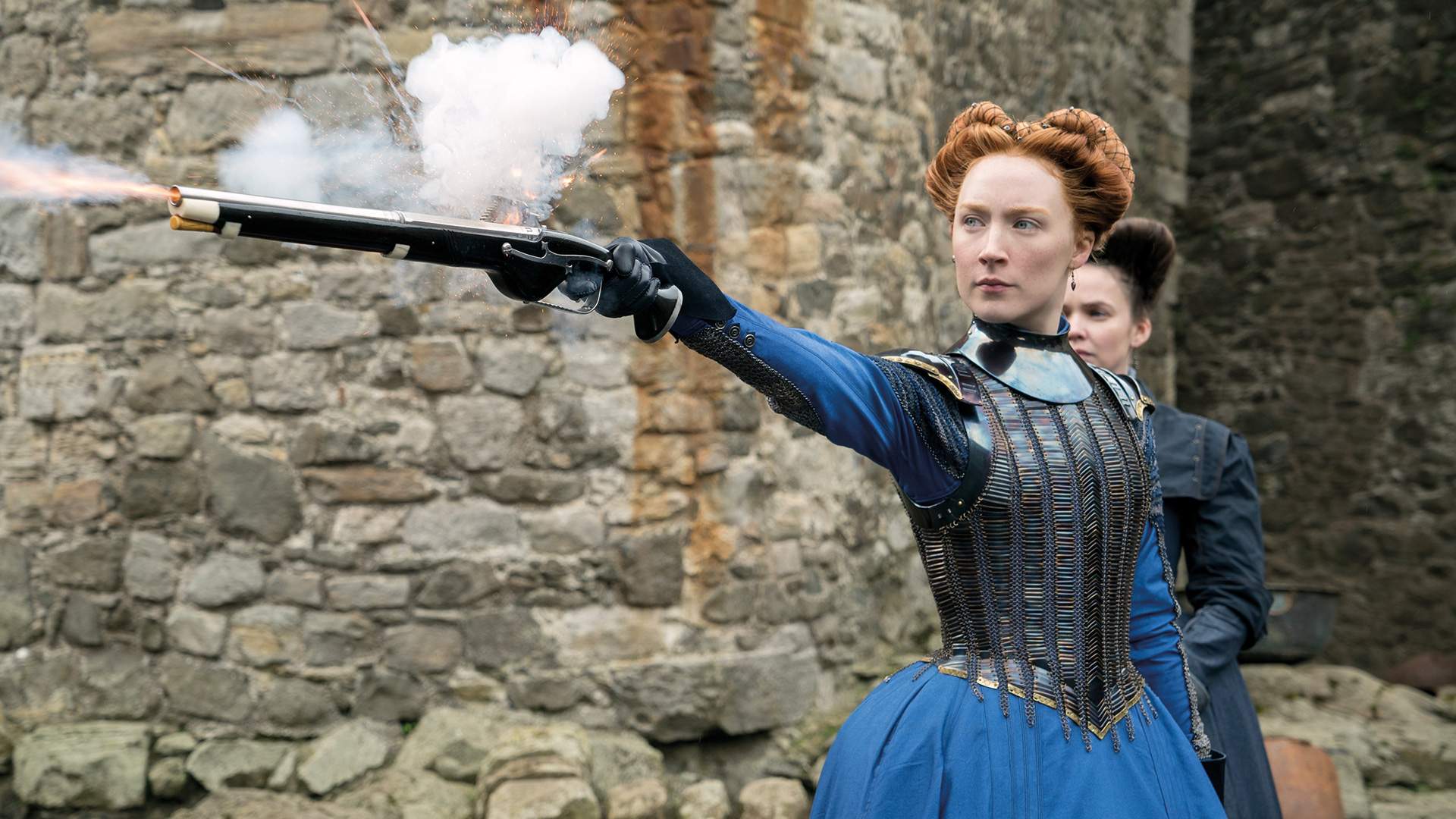Mary, Queen of Scots
With commanding performances from Saoirse Ronan and Margot Robbie, this historical drama couldn't feel more relevant today.
Overview
Mary, Queen of Scots is a film steeped in two time periods, yet firmly of the times. A historical drama set in the 16th century as two female monarchs battle for supremacy, it's also a movie that could've only been made today. The true tale itself has graced the screen before, but the angle favoured by this interpretation of the story is straight out of the #MeToo era. As much as Mary, Queen of Scots tells of its titular ruler (Saoirse Ronan) and her conflict with her cousin Queen Elizabeth I (Margot Robbie), it also explores the forces pitting them against each other and putting them in their places.
When Mary returns to Scotland after a childhood spent in France, she regains her throne and sets her sights on her other birthright. The only legitimate child of King James V, she boasts a claim to England, even if Elizabeth already wears that crown. What follows is a quest for sovereignty by two relatives as different as they are alike. Mary is a teenage Catholic open to love, life and birthing a successor to both kingdoms, while Elizabeth is a Protestant who refuses to marry and isn't expected to bear an heir. But they're each headstrong, intelligent and passionate, and determined to fight for what's theirs regardless of the obstacles in their path.
In a movie filled with men unhappy about serving the fairer sex, including Mary's disapproving half-brother (James McArdle), a scare-mongering religious leader (David Tennant) and Elizabeth's duplicitous chief advisor (Guy Pearce), there's no doubting how cruel the world can be to a woman in power. While political manoeuvring and machinations drive Mary, Queen of Scots' plot, confident first-time director Josie Rourke works with screenwriter Beau Willimon (House of Cards) to focus on the bigger picture. Behind both queens stands a line of wolves in sheep's clothing, complying with their rulers to the bare minimum and trying to push their own agendas. If the male posturing and plotting didn't ring so true, it might've felt like a forced, convenient modern revision designed to highlight that women still struggle to be taken seriously, even if their troubles are finally getting more attention. Sadly, men attempting to tear down female leaders hasn't gone out of fashion in the past five centuries.
A veteran of the London stage before this, Rourke knows where the strength of the story lies. Although her handsomely mounted picture is based on the biography Queen of Scots: The True Life of Mary Stuart and clearly favours the Scottish monarch over her cousin, Mary's struggles are deepened by the comparison to Elizabeth. Indeed, through skilled, fluid cross-cutting, the film convincingly closes the gap between two women who only actually share one scene. Their face-to-face, when it comes, is climactic, emotional and memorable (not to mention strikingly staged by Rourke and her team), but Mary, Queen of Scots places them face-to-face from start to finish, in a manner. History branded Mary and Elizabeth competitors; this version of history sees them as kindred spirits.
Still, for all of Mary, Queen of Scots' successes, it ultimately mirrors the plight of its protagonists: striving for greatness, and to make an impact, yet often weighed down. It's a fine, meaningful film that could've been stellar, but sometimes makes its minutiae feel routine and elongated. After a while, the letters back and forth, the scheming and strategies, and the fears and the threats all bleed into each other, even for those already familiar with the details.
Thankfully, the same can never be said of 2018 Oscar nominees Ronan and Robbie, each worlds apart from their respective acclaimed roles in Lady Bird and I, Tonya. One is plucky and idealistic, the other fierce yet silently fraying, and both are tinged by exhaustion and frustration — not from squaring off against each other, but from simply fighting to exist. Any movie would be lucky to have them, and their equally timely and timeless vision of women holding their own. Mary, Queen of Scots is lucky to have both.





